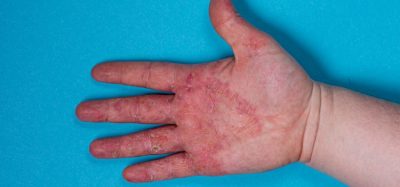Risankizumab trials show higher clinical remission in patients with Crohn’s disease
Posted: 11 January 2021 | Victoria Rees (European Pharmaceutical Review) | No comments yet
Two Phase III trials have shown that two doses of risankizumab met the primary endpoints in patients with Crohn’s disease.


AbbVie has announced positive results from two Phase III induction studies on risankizumab. The trials, ADVANCE and MOTIVATE, showed both doses of risankizumab – 600mg and 1,200mg – met the primary endpoints of clinical remission and endoscopic response at week 12 in adult patients with moderate to severe Crohn’s disease.
Risankizumab is an IL-23 inhibitor that selectively blocks IL-23 by binding to its p19 subunit. IL-23, a cytokine involved in inflammatory processes, is thought to be linked to a number of chronic immune-mediated diseases, including Crohn’s disease.
The ADVANCE and MOTIVATE studies are Phase III, multicentre, randomised, double-blind, placebo-controlled induction studies designed to evaluate the efficacy and safety of risankizumab in adults with moderate to severe Crohn’s disease.
The ADVANCE study enrolled patients who had an inadequate response or were intolerant to conventional and/or biologic therapy. The MOTIVATE study evaluated patients who had responded inadequately or were intolerant to biologic therapy.
“The progressive nature of Crohn’s disease makes it critical that treatment options go beyond symptoms to help patients achieve endoscopic response,” said Dr Michael Severino, Vice Chairman and President of AbbVie. “Despite the availability of current treatments, many patients still do not achieve disease control. These positive results show how targeting IL-23 can rapidly induce improvements for people living with this condition. We look forward to advancing research showing risankizumab’s potential to improve clinical and endoscopic outcomes and minimise the burden of Crohn’s disease for patients.”
In the ADVANCE study, a significantly greater proportion of patients treated with risankizumab 600mg or 1,200mg achieved clinical remission. A significantly greater proportion of patients treated with either dose of risankizumab achieved endoscopic response at week 12 (40 and 32 percent of patients receiving risankizumab 600mg or 1,200mg, respectively, versus 12 percent in the placebo group.
In the MOTIVATE study, 42 and 41 percent of patients treated with risankizumab 600mg or 1,200 mg achieved clinical remission at week 12, respectively, versus 19 percent of patients receiving placebo.
During the 12-week induction period, the safety profile of risankizumab in both studies was generally consistent with the known safety profile of the treatment. No new safety risks were observed.
Related topics
Antibodies, Clinical Development, Clinical Trials, Drug Development, Research & Development (R&D)









